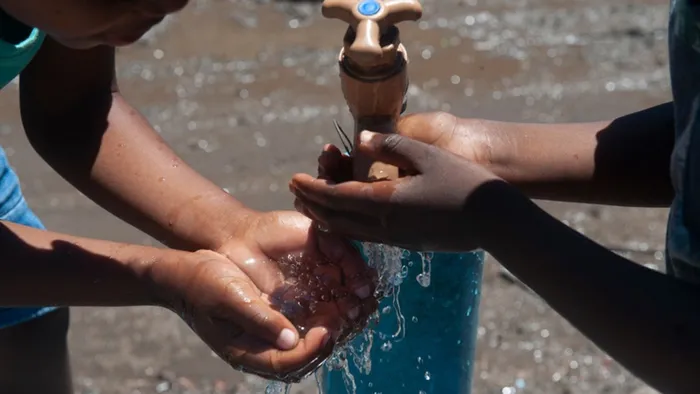NGO warns that lack of water threatens young lives ahead of Hand Hygiene Day

NGO warns that lack of clean water in ECD centres puts children’s lives and development at risk, as many are forced to rely on unsafe alternatives for handwashing.
Image: File
As World Hand Hygiene Day nears on May 5, a sobering warning has been issued regarding South Africa’s continued struggle with providing fundamental water and sanitation services in early learning centres.
This shortfall not only jeopardises the health of our youngest children but also threatens their development, leaving them vulnerable to illness and long-term setbacks.
According to the Santa Shoebox Project, only 53% of Early Childhood Development (ECD) centres in South Africa have access to piped water, electricity, and flushing toilets. Even more alarming, 8% of these centres operate without any of these essential services.
“This is not just a public health issue, it’s a matter of dignity, education, and the country’s long-term development,” said Deb Zelezniak, CEO of the Santa Shoebox Project.
“No child should fall sick or die simply because there was no water to wash their hands.”
Despite a R210 million government pledge to improve ECD infrastructure over the next two years, delivery remains severely lacking. Many centres remain trapped in a bureaucratic cycle—unable to qualify for registration and funding due to their poor facilities, yet unable to afford the improvements needed to qualify.
“Centres that can’t afford the water and sanitation improvements needed for registration are locked out of the very funding that could help them upgrade,” explained Zelezniak.
“Instead, they rely on rainwater tanks, boreholes, or public taps, none of which guarantee consistency or safety.”
The consequences are dire.
“Children constantly touch surfaces and objects, picking up germs as they go,” she said.
“Without proper hand hygiene, those germs can lead to dangerous illnesses like diarrhoea and respiratory infections, two of the leading causes of death among South Africa’s under-fives.”
Handwashing with soap, a simple and cost-effective intervention, can reduce diarrhoea rates by up to 40% and respiratory infections by up to 25%, according to Zelezniak.
Beyond immediate health threats, the lack of water and sanitation also has long-term consequences for children’s development.
“Research shows that poor water and sanitation infrastructure hinders a child’s cognitive, language, and motor development, with long-term effects on their educational attainment,” she noted.
While non-profit organisations like the Santa Shoebox Project are stepping in to renovate centres and promote hygiene, Zelezniak insists this is not enough.
“Supporting ECD owners to meet registration standards must be a national priority,” she urged.
With Hand Hygiene Day approaching, the message is clear: access to clean water is not a luxur, it’s a fundamental right that underpins a child’s health, dignity, and future.
IOL News
Get your news on the go, click here to join the IOL News WhatsApp channel
Related Topics:
